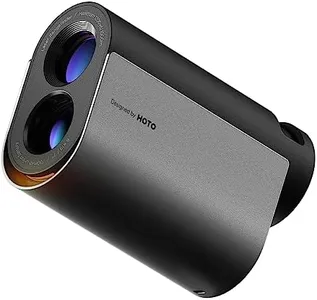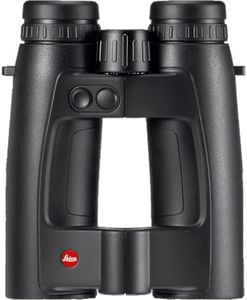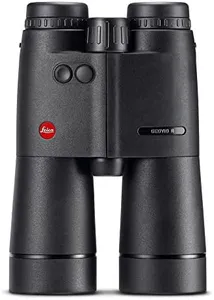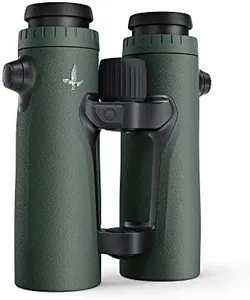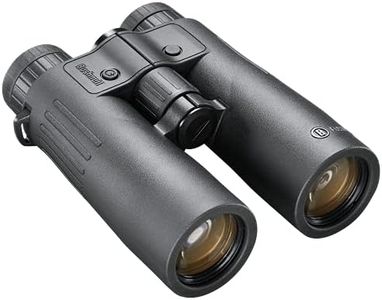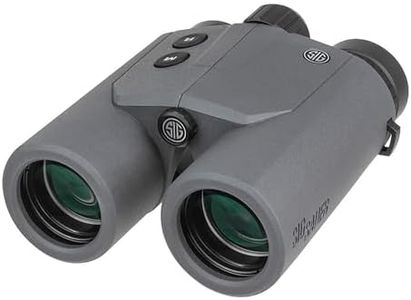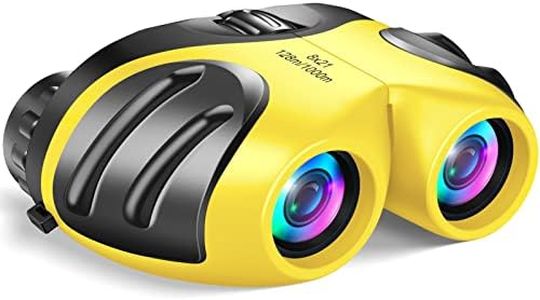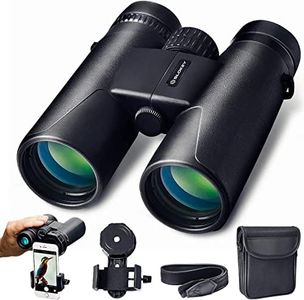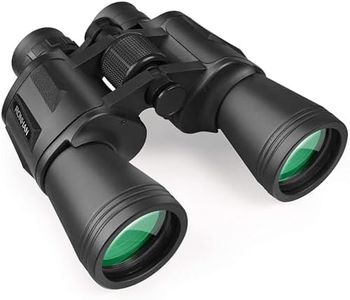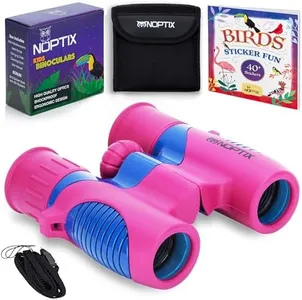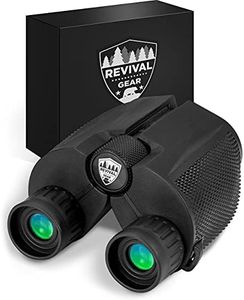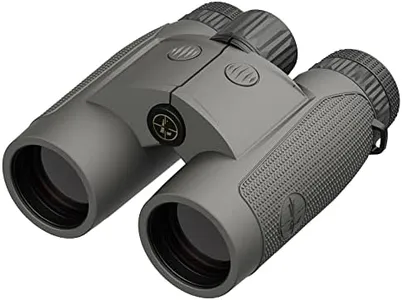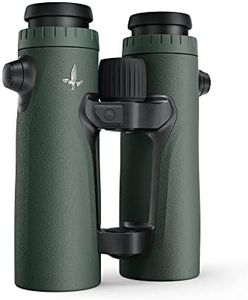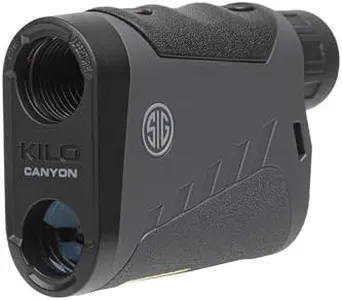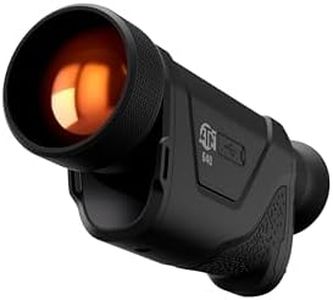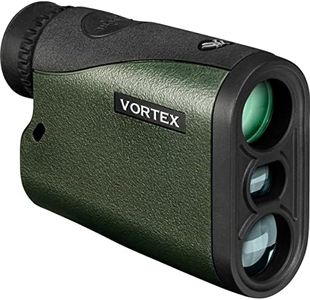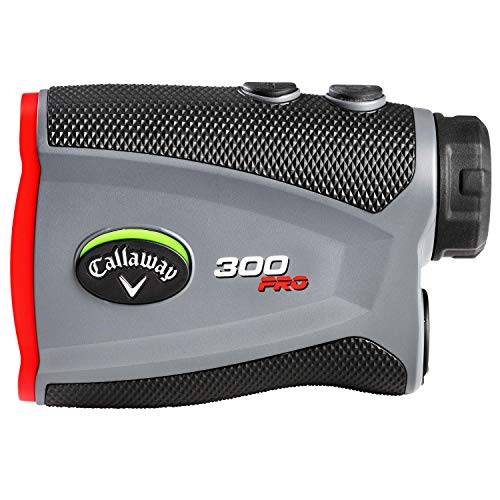10 Best Hunting Rangefinders 2025 in the United States
Our technology thoroughly searches through the online shopping world, reviewing hundreds of sites. We then process and analyze this information, updating in real-time to bring you the latest top-rated products. This way, you always get the best and most current options available.

Our Top Picks
Winner
LEICA Geovid Pro Rugged Compact Ergonomic Lightweight Weather-Proof Hunting Rangefinder Binoculars with Built-in Compass, Black, 10 x 42
Most important from
4 reviews
The Leica Geovid Pro is a top-tier hunting rangefinder that excels in several key areas important for long-distance hunting. With a maximum range of up to 2,950 meters, it provides exceptional rangefinding capabilities, making it suitable for both mountainous terrain and long-range sport shooting. The high 10x magnification and 42mm objective lens diameter allow for detailed and clear observations, which are crucial for spotting targets at vast distances.
One of its distinctive features is the built-in compass and Applied Ballistics software, which greatly assist in target tracking and calculation, enhancing accuracy and efficiency during hunts. The angle compensation feature ensures that accurate readings are provided even on inclined surfaces, a vital specification for shooting in diverse terrains. Additionally, the device stores the last five measured distances, facilitating easier navigation and target reacquisition. The display is designed for clarity and fast readings, critical for quick decision-making in the field.
Durability stands out with its rubber-armored magnesium housing, offering robust protection against harsh weather conditions and ensuring longevity. However, its size and weight (10.5 x 8.2 x 6.8 inches and 3.9 pounds) might be on the heavier side for some users, potentially causing fatigue during extended use. The Leica Geovid Pro is highly reliable for serious hunters who require precision and advanced technology but may not be the best choice for those prioritizing lightweight gear.
Most important from
4 reviews
LEICA Geovid R Gen 2022 Compact Lightweight Hunting Bird Watching Rangefinder Binoculars with Carrying Strap Incuded, 15X56
Most important from
19 reviews
The Leica Geovid R Gen 2022 offers a compelling package for hunters and bird watchers seeking reliable rangefinder binoculars. With a 15x magnification and a robust 56mm objective lens, it promises excellent detail recognition for long-range observations. This is particularly beneficial in spotting and identifying distant targets with clarity, making it a strong contender for those needing precise, high-magnification optics.
The rangefinder features advanced laser technology with an impressive measurement range of up to 1800 meters or 2000 yards. This extensive range is useful for hunters who require accurate distance readings, and the inclusion of Leica's ballistics function EHR aids in making ethical shots by providing crucial range data. Ease of use is another highlight. Despite its high-powered specifications, the binoculars remain lightweight at just 2 pounds, facilitating easy handling during prolonged use. The controls are designed to be ergonomic, contributing to a user-friendly experience even in challenging outdoor conditions.
Durability is enhanced with a sturdy construction, making it suitable for various environments. However, the larger size, due to the 15x magnification, may not be as compact as some might prefer, which could impact portability for individuals prioritizing a smaller footprint. The Leica Geovid R Gen 2022 is a top-tier option for those who prioritize powerful magnification and range capabilities in their outdoor activities, balanced by practical ergonomics and a touch of elegance in design.
Most important from
19 reviews
SWAROVSKI Optik 10x42 EL Laser Rangefinder Binoculars with Tracking Assistant, SWAROVISION Technology, and App Support (Green)
Most important from
19 reviews
The SWAROVSKI Optik 10x42 EL Laser Rangefinder Binoculars are a high-end choice for hunters looking for precision and advanced features. With a maximum magnification of 10x and a 42mm objective lens diameter, these binoculars offer clear and detailed views. The rangefinder integrates a tilt indicator and an angle shot program, which aids in calculating adjusted distances and angles, enhancing accuracy in various hunting situations.
Personalized ballistics data can be configured via a smartphone app, and atmospheric data further enhances precision, making it highly suitable for experienced hunters who need tailored tracking information. The built-in Tracking Assistant helps locate where your last shot was fired, simplifying prey tracking. Its durable design and lightweight nature (weighing 5.75 pounds) make it portable for outdoor use. The product dimensions (11 x 9.5 x 3.75 inches) ensure it is manageable in size without compromising on functionality.
However, its high price might be a drawback for budget-conscious users. Another limitation could be the requirement of a CR2 battery, which is not included in the package. While customer reviews are generally positive, the binoculars might not be suitable for beginners due to their advanced features and configuration needs. Ideal for professional hunters looking for top-tier equipment that offers precision, durability, and advanced tracking capabilities.
Most important from
19 reviews
Buying Guide for the Best Hunting Rangefinders
Choosing the right hunting rangefinder can significantly enhance your hunting experience by providing accurate distance measurements to your target. This helps in making precise shots and improving your overall success rate. When selecting a rangefinder, it's important to consider several key specifications to ensure it meets your specific needs and preferences.FAQ
Most Popular Categories Right Now
